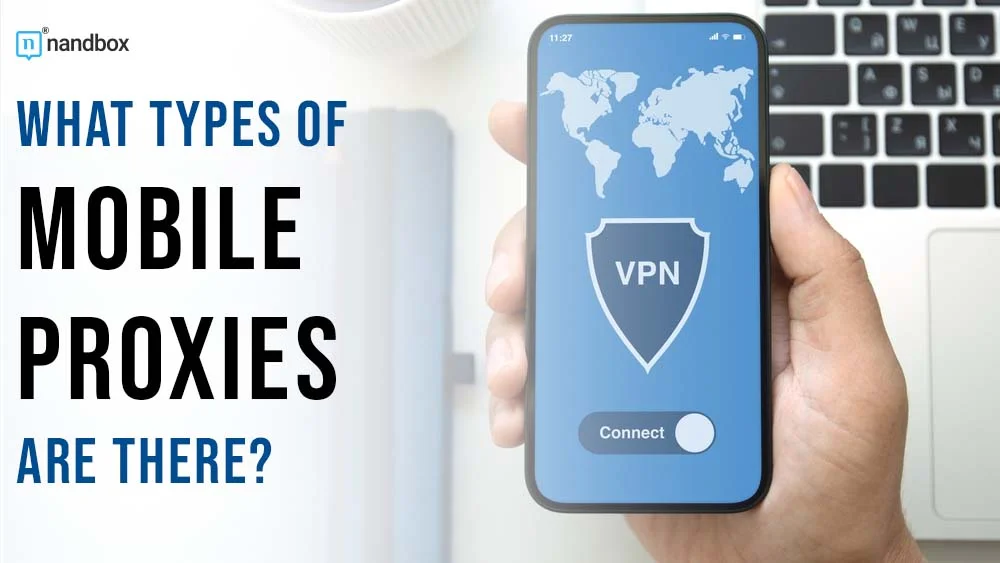Choosing the Right Mobile Proxy for Your Needs
A proxy is a good tool that allows you to ensure the anonymity of a user’s online activity. It is useful both for bypassing regional and local blocking, and for expanding opportunities in SEO and SMM, working on Amazon, eBay, and other platforms. If you are interested in using mobile Instagram, Amazon, or eBay proxies, then this article is for you. You will learn about the features of each proxy type, including HTTP/HTTPS and SOCKS.
Features And Types of Modern Proxies
A proxy is a kind of gateway between a PC or smartphone and a website. Thanks to an intermediate server that separates the user from the online resource, you can ensure a high level of privacy and security. In addition, proxies can cache data and thereby increase the speed of request processing.
Modern proxies for eBay, Amazon or Facebook have many different classifications. For example, they are ones that are for a fee (individual). Additionally, there are ones that are free (public). Developers divided proxies into the following types based on the principle of operation and level of security:
The Types of Proxies:
- anonymous: defined as a proxy but does not show your IP;
- transparent: identified as a proxy, does not hide the user’s address, usually used to filter content and speed up page loading;
- distorting: inform resources that it is a proxy, transmit a false address;
- proxies with a high level of anonymity: due to frequent changes of IP address, they make it difficult for websites to track them, thus providing maximum protection.
As for data transfer protocols, we can highlight CGI, FTP, HTTP, and HTTPS, as well as SOCKS proxies.
- CGIs are web proxies that resemble a regular page. They do not have an open port; they are a kind of web application that you fill using the browser from a remote server. To activate an anonymous connection, you need to go to a website with a web proxy, enter the URL of the desired site, and click “Start”.
- An FTP proxy can exchange data with a client and server via FTP, or work with a browser via HTTP or FTP protocol and with an FTP server via FTP.
- Developers designed HTTP and HTTPS specifically for browsing web pages and running certain programs. Typically, you need such proxies to filter data and gain access to prohibited online sites.
- SOCKS proxy is an Internet protocol responsible for transmitting data packets from the server to the client using an intermediate server. It is considered the most advanced technology for organizing a proxy.
Let’s take a closer look at HTTP/HTTPS and SOCKS as the most popular and useful proxies.
What Is Important to Know About HTTP and HTTPS Proxies?
HTTP stands for HyperText Transfer Protocol and is a type of proxy designed to work on the Internet. It transmits information from the server to the browser and displays the desired content to the user.
HTTP proxy is considered an outdated solution with a low level of security. The fact is that this protocol was invented back in 1989, when few people were worried about Internet security. Problems with HTTP began simultaneously with the global popularization of the Internet and the emergence of online payments. After all, initially, programmers set themselves the task of transmitting information as quickly and losslessly as possible, which is why data packets were sent/received in clear text. Essentially, this is the same as sending letters by mail without envelopes, relying on the decency of the postmen. Cybercriminals took advantage of this carelessness. They began to destroy servers and websites and steal user data. To eliminate the vulnerability in HTTP, the HTTPS version was created.
HTTPS is the same as HTTP but protected with an SSL certificate. It guarantees the security of personal data through hack-resistant encryption of all transmitted traffic. HTTPS is designed for secure connections, which is especially important when entering a username and password, sending credit card information, and providing other important personal information.
Application areas of HTTP/HTTPS mobile proxies:
- gaining access to blocked platforms;
- working with small data sets;
- filtering information on the resource;
- caching to improve performance;
- connection speed limit;
- traffic monitoring.
Among the advantages of HTTP and HTTPS, we should highlight the provision of basic security, the ability to save traffic through caching, and an affordable price. Disadvantages include slow connections and outdated protocols.
How SOCKS Proxy Works
SOCKS is an acronym for Socket Secure, a protocol that routes network traffic through a firewall. This is a progressive type of proxy, which is characterized by an up-to-date method of transmitting information. It is designed specifically for software and applications that do not directly support proxy connections.
Now users have access to SOCKS4, which exclusively supports TCP connections, and an improved version of SOCKS5. This completely anonymous proxy supports authorization by login/password, remote DNS query, TCP, and UDP. That is, SOCKS5 allows programs to use proxies, even if the developers did not initially include such an option in them.
Interestingly, SOCKS transmits data in its pure form without moderation of HTTP headers. The site you visit using a proxy is not able to detect the presence of a proxy. The connection is carried out transparently, as if you are not connected to a proxy, but the site sees not your address, but the IP of the proxy.
SOCKS features:
- improved performance on P2P sites;
- ensuring visibility of work “directly”;
- productivity increase;
- absence of a large number of inaccuracies and errors;
- reliable internet connection;
- high level of anonymity of personal data;
- bypass various Internet blocks.
SOCKS proxies are a new protocol with great potential that guarantees high connection speeds and the highest possible anonymity. To date, experts have not found any downsides to this version.
Wrapping It Up
If you plan to use a proxy to visit blocked social networks and sites, SEO promotion, and online games, then you can limit yourself to HTTP/HTTPS. If you need a universal assistant suitable for all resources and programs, including Amazon and eBay, then you should focus on mobile proxies with SOCKS support. In addition to choosing the type of proxy, the proxy provider itself also plays an important role. Only by giving preference to a reliable, proven service can you count on favorable conditions and comfortable work. We recommend paying attention to iProxy, a reliable supplier of mobile proxies for working with social networks, marketplaces, etc.







